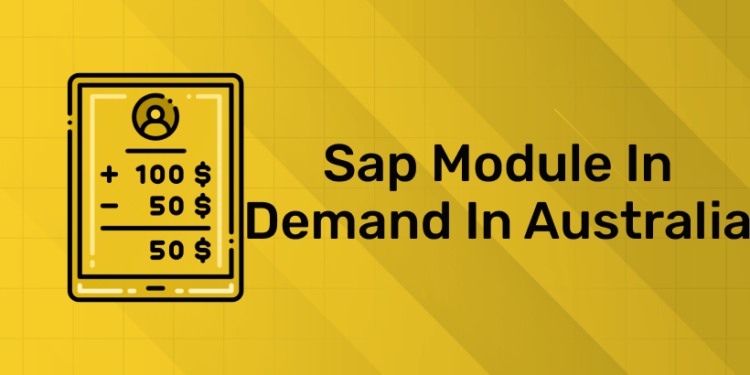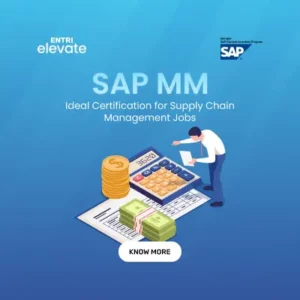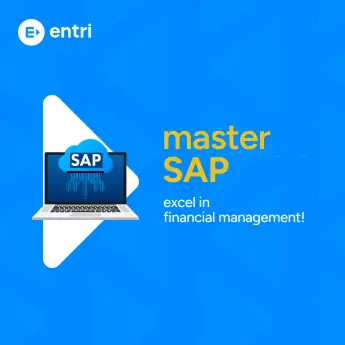Table of Contents
For their day-to-day business processes, SAP is implemented by many companies across different industry verticals. Today, SAP is the third largest independent software vendor in the world, with more than 12 million users in 180 countries, more than 1,500 partners, more than 25 industry solutions and approximately 130,000 installations worldwide.
Elevate your Career with SAP FICO Course! Get free Demo Here!
Sap Modules in Demand in Australia
The most requested SAP modules in Australia are usually Finance (FI) and Controlling (CO). These modules are essential for managing financial operations and reporting within organizations and are widely used across various industries in Australia.
1.SAP FICO
SAP FICO enables an organization to manage all of its financial data and it is an important core functional component of the central SAP ERP component. SAP FICO allow a company to keep or store a complete version of their financial transaction data. Especially, to help the companies to manage and create and financial statements for analysis and reporting, as well as to assist in effective business planning and decision making is the purpose of SAP FICO.
SAP ERP Central Component (SAP ECC) is an on-premise enterprise resource planning (ERP) system. Commonly SAP ERP Central Component referred to simply as “SAP ERP”. SAP FICO helps ECC with financial accounting and controlling functions.
SAP FICO mainly contains two part : SAP Finance (FI) and SAP Controlling (CO). Both of the section is used for specific financial processes. Overall financial reporting and accounting is handled by SAP FI , while planning and cost tracking is handled by SAP CO . SAP FI and SAP CO were normally released as two different modules, but many people refer to them simply as one module , so now it is tightly integrated.
SAP FICO also integrates with other SAP Logistics modules, including Sales and Distribution (SD), Plant Maintenance (PM), Production Planning (PP), Materials Management (MM) and Quality Management (QM).
SAP FI modules
For reporting and analysis, SAP FI enables organizations to create financial statements. Types of financial statements may include income statements or balance sheets. SAP FI have different sub-modules that handle specific accounting processes:
- The general ledger contains all of the company’s transaction data in the chart of accounts. All accounts in the system are listed here. Transactions are recorded in sub-modules that can be recorded in real-time with the general ledger data.
- Accounts Receivable captures manages customer accounts and customer transactions. Transactions include posting invoices, posting credit memos, making advance payments, paying invoices or making customer reports.
- Accounts payable includes all transactions with suppliers and managed supplier accounts. Transactions may include invoice posting, credit memo posting, advance payments, invoice payments, automatic payment program, and performing vendor reports.
- Property accounting manages all transactions related to a company’s fixed assets, such as land, buildings, and heavy equipment. Transactions include asset acquisitions, disposals, sales, transfers, revaluations and write-offs.
- The bank book deals with bank account data of the company and all transactions. Can reconcile all transactions recorded on bank statements and compare them with transactions in the system.
- Consolidation allows a company to combine financial statements for multiple entities, which provides an overview of the company’s financial position as a whole.
- Funds Management manages budgets for the company’s income and expenses.
- The general ledgers in SAP FI for reporting purposes is defines Special Purpose Ledger.
- Travel Management manages all transactions related to travel processes, including booking trips and processing travel-related expenses.
SAP CO modules
While SAP FI deals with corporate accounting and internal and external reporting, SAP CO supports processes for planning, reporting and monitoring costs from business operations. In improving the profitability of the company, SAP CO can be helpful. Like SAP FI, SAP CO also consists of sub-modules that handle specific processes:
- Cost Elements, which provides an overview of all company costs and revenues based on profit and loss statements — also known as income statements. The origin of costs is described by Cost element accounting . Cost elements represent specific costs incurred by the company.
- Cost centers deal with costs associated with a company’s internal divisions or departments, such as sales, production, marketing, or human resources. Cost centers only include costs, not revenues.
- Profit Centers process all cost data related to the company’s business lines. It deals with both costs and revenues — unlike cost centers, which only deal with expenses.
- Internal purchase orders are used to manage costs for smaller internal projects or non-fixed assets – such as a limited-time marketing campaign.
- Profitability analysis allows a company to analyze the profitability of its products. For example, profitability analysis can be useful for making decisions on matters such as product pricing, distribution channels, and target market segments. It also enables a level of detail in profitability analysis, such as for each region or country, product types and distribution channels, or the profitability of individual customers.
- Product Costing manages data about the costs needed to produce a company’s goods and services. Product cost analysis can help manage production costs and optimize efficiency.
2.SAP MM
The core module in the SAP ERP Central Component (ECC) is SAP Materials Management(MM). IT equips organizations with materials, warehouse management capabilities and inventory. To ensure that all materials of the organization are maintained in the right quantity at the right time at the right place is the primary role of SAP MM. In the organization’s supply chain, it ensures that there are no shortages or supply shortages. It helps inventory managers, storekeepers and other supply chain professionals complete the procurement of raw materials and goods in a timely and cost-effective manner. Material management is the one of the biggest challenges facing the organizations today . SAP MM helps organizations improve their supply chain, inventory and warehouse management by providing complete control over manpower, machinery and materials. By implementing SAP MM, organizations can streamline their production line, supply chain, and logistics to deliver materials to customers efficiently and affordably. SAP MM, a key module of the logistics function of SAP ECC, integrates with other modules such as production planning (PP), plant maintenance (PM), sales and distribution (SD), human capital management (HCM), and quality management (QM).
Types of procurements in SAP MM
The two types of supply in the SAP MM module is given below:
1. Basic procurement
The process of purchasing the right material and services in the right quantity at the right time at the lowest prices is basic purchasing. The basic procurement include various steps and it will provided below:
- Information Gathering: The procurement process begins with the gathering of product and quantity details. Depending on the number of products required, the module contacts the relevant suppliers.
- Contacting suppliers: Depending on the demand, selected suppliers fulfill the orders.
- Evaluation of products and services: The materials management team evaluates products and services based on their performance. The team contacts the same suppliers for repeat orders or contacts new suppliers to depending on the product evaluation.
2. Special procurement
The company give special acquisitions to the products that do not belong to the company. Some of the common types of special orders and unique supplies include:
- Consignment supplies: These are materials that are available on the store premises. But in order to use them, the seller must pay the seller.
- Third-party processing: The seller passes orders to a supplier who delivers the product directly to the customer.
- Pipeline Handling: The supplier stores the material at its premises, even after the seller has placed the order. The seller obtains the material from the seller and delivers it to the customer, whenever a customer places an order.
Take Your Career to New Heights with Our SAP MM Course! Get free Demo Here!
Benefits of SAP MM
With the changing demands and expectations of customers, the effectiveness of the organization is related to its ability to satisfy the market demands in the shortest possible time. To ensure smooth delivery of products, a business must maintain the right inventory at the right time. An effective materials management process helps prevent supply gaps and shortages of inventory and raw materials and improves supply chain efficiency. SAP MM automates material management and purchasing activities, making the entire process more competent. The main benefits of SAP MM is given below:
- improves overall inventory management
- minimizes and eliminates inventory losses
- reduces time and labor spent on inventory maintenance
- reduces material waste by avoiding the storage of obsolete or unnecessary products
- reduces labor costs and optimizes labor employment
- minimizes production cycle time
- reduces the cost of storing unwanted materials
- improves product delivery times
- increases the transparency of inventory management
Conclusion
For SAP consultants, Australia has long been a technology leader and a global hub. This is due to the country’s strong economy, high level of business activity and strong presence in the Asia-Pacific region. So, many SAP consultants have moved to Australia.
Analyzing the ever-increasing requirements for SAP-based solutions in several Indian and international companies these days, it makes sense to take SAP training course to help you accelerate your career growth.
Accounting courses we offer |
Accounting courses in Different Cities |
| Business Accounting & Finance Certification | |
| Tally Course | |
| Taxation Course | |
| UAE Accounting Course | |
| GST Course |
Master SAP with Expert-Led Courses
Unlock your potential with our comprehensive SAP courses! Learn essential modules like SAP MM (Materials Management), SAP SD (Sales and Distribution), and SAP FICO (Financial Accounting and Controlling) from industry experts.
Know MoreFrequently Asked Questions
Does Australia use SAP?
Which SAP module is in high demand?
How much do SAP leads make in Australia?
The average salary for SAP Basis Lead is $160,228 per year in the Australia.













